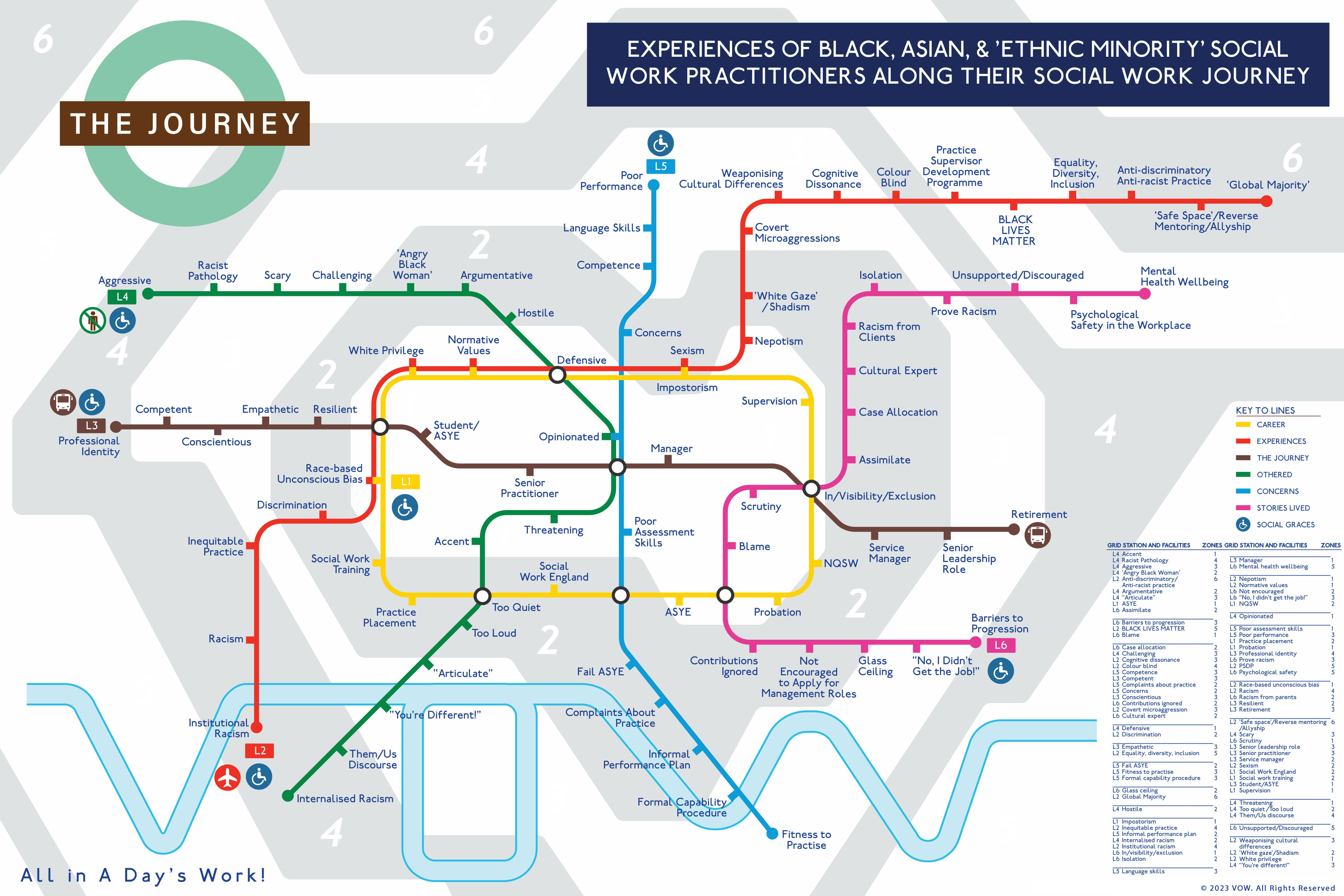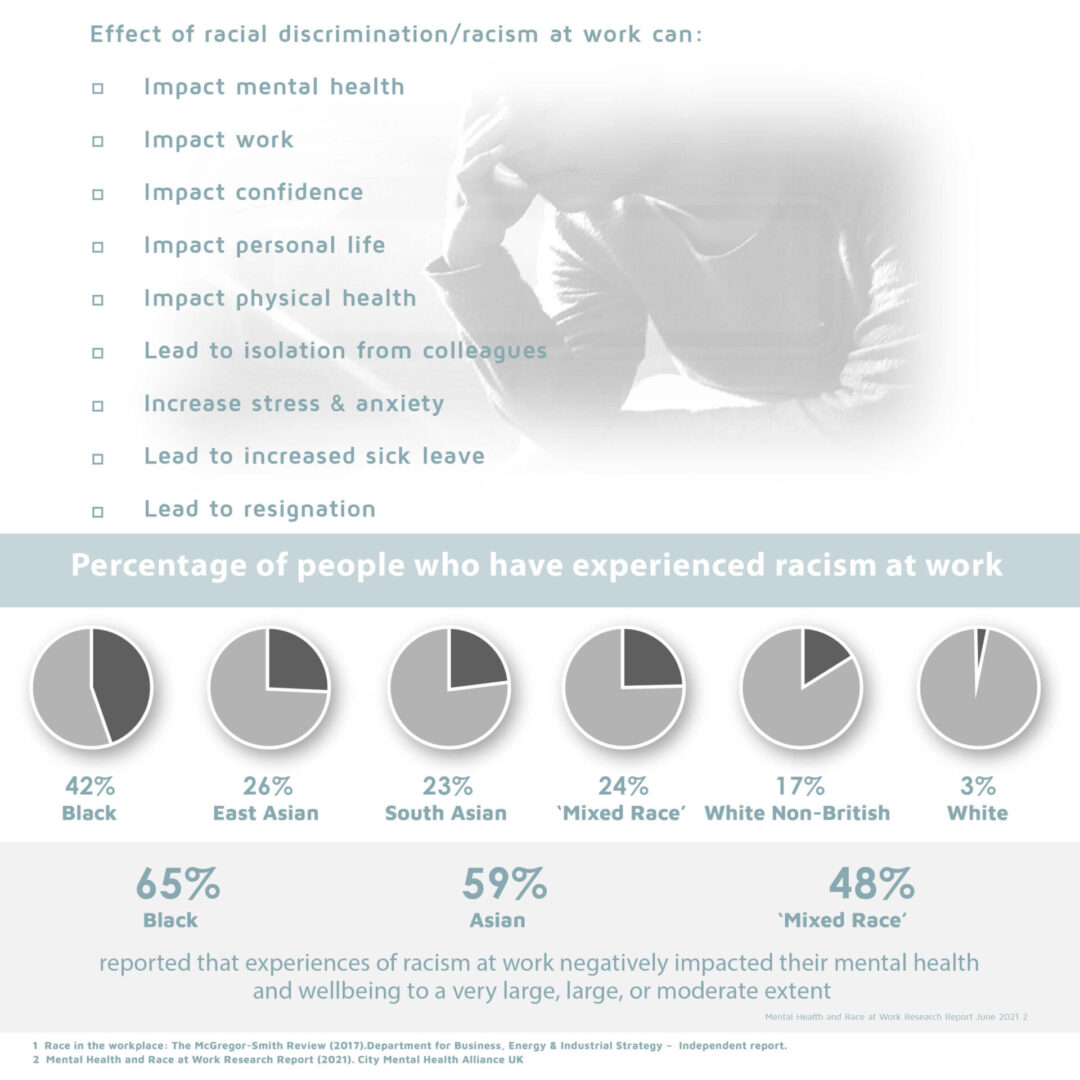Delivering on a Promise
Supporting social care organisations to strive towards challenging inequitable practice
Who Are BME or BAME?

BME or BAME are acronyms used to categorize people from Black, Asian, and ‘ethnic minority’ groups within British society—where there is a history of slavery, colonialism, economic migration, and asylum etc.—who face racial discrimination and racism because of skin colour, national or ethnic origin, and/or religion. VOW acknowledges that Black and ethnic minority are political terms which are rejected by those wishing to self-identify with descriptions that are not constructed around the concept of otherness. As new definitions emerge such as ‘racially minoritised,’ ‘ethnic minoritised,’ or ‘Global Majority,’ there is an acknowledgement that people marginalised through the process of power and subjugation otherwise exist within the wider context of the global majority.
In the meanwhile, we will use the term Black, Asian, and ‘ethnic minority’ social work practitioners and will adapt this definition as language changes.
The Context: Why VOW?

While the child and family social care workforce in England is moderately diverse at around 17%, and 27% in adult social care, this gets less so as people progress into more senior roles. A white male is six times as likely to be a senior manager as a black female and twice as likely as a white female.* It is evidenced that Black, Asian, and 'ethnic minority' staff are over-represented in disciplinary procedures.
* Spillett, M (2014) Leadership Imbalance: Black and Asian leaders missing in action. Black and Asian Initiative
Is it a coincidence that Black, Asian & 'ethnic minority' social work practitioners are underrepresented in senior management roles but disproportionately represented in informal and formal capability procedures and fitness to practice investigations? Or does this reflect the complexity of issues that include unconscious bias, microaggressions, racism, sexism, homophobia, disablism etc. (which VOW refers to as inequitable practice), and inadequate support mechanisms within organisations?
Unfortunately, experiences of inequitable practice within the workplace are not uncommon and can affect a practitioners’ ability to access personal and professional resources and respond to dilemmas or challenges particularly if feeling overwhelmed and unsupported. This will impact confidence, health, psychological well-being, and can negatively influence performance.
In response to the disparities disadvantaging Black, Asian & 'ethnic minority' practitioners, VOW was established to offer a much-needed strengths-based supportive, confidential, and safe environment where dilemmas or challenges are explored; where stories and feelings are validated; and importantly, where strategies are developed to help practitioners move forward. Unlike other social work bodies that provide mentoring support, VOW understands the need for a specialised service to help practitioners think things through and believes that social care organisations should fund those wanting to engage in this CPD resource.
Mark* | A Social Workers Story
“I find that I am judged more critically than peers. I’m observed at work by colleagues more than others too. This critical observation comes from peers as well as from managers. This is due to perception and stereotypes of Black people, particularly men. The issues are that institutional racism is prominent in all of social care, children, and adult services. Just like in the police force.
Anyone reading this whether Black or White will feel that I am being paranoid. I’ve been a social worker and worker in other social care provisions for nearly 30 years. I’ve never experienced fitness to practice but I’ve had managers looking for ways to undermine my skills when I’ve been in the service longer than they have. I have peers reporting me to managers for the most trivial of reasons. I’m nearly 60 so I know what I feel and what I have experienced.”
Comment by social worker* (name changed) in response to Community Care article ‘Black & ethnic
minority social work practitioners disproportionately subject to fitness to practise investigations,
dated 31st July 2020.

Metro Map - All in a days work! Experiences of Black, Asian, and 'ethnic minority' social practitioners along their social work journey!
The Metro Map tool highlights the dilemmas and challenges experienced by practitioners. As an aide memoire, it can be used during mentoring sessions, personal supervision, and in social work training settings.

Impact of racism in the workplace

Leaders

“It is no surprise that leadership and culture play a key role in creating obstacles while also providing the solutions that enable BME individuals’ success….We have also found that mentoring [has] consistently delivered results and it is incumbent upon all management to play their part in supporting people from all backgrounds.”
Baroness McGregor-Smith CBE 2017 1
Leaders are responsible for ensuring equitable and safe workplaces for all. By re-examining organisational work culture, leadership styles, management structures, and capability policy and procedures, leaders will ensure that:
- Organisations have effective and responsive mechanisms that challenge inequitable practice.
- Create an environment where all members of the workforce are valued and that progression pathways are accessible to all.
Leaders have much to do! While there is a renewed commitment towards anti-discriminatory and anti-racist practice which has seen Black, Asian, and 'ethnic minority' social work practitioners take part in ‘safe space’ conversations, reverse-mentoring initiatives, and allyships etc., alternative ‘spaces’ are required where practitioners can develop strategies to combat the erosive effect of inequitable practice on professional identity, performance, and mental health.
It will take time to implement the necessary changes to make the workplace equitable for all. However, leaders can take an important step forward right now by recognising the need for, and funding CPD that provides psychosocial mentoring support to Black, Asian, and 'ethnic minority' practitioners.
For more information about our work with Black, Asian, & ‘ethnic minority’ social work professionals and to request support from our team



